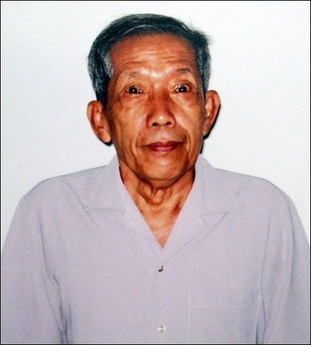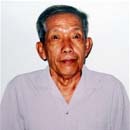Khmer Rouge prison chief first to be charged by UN-backed court
AFP
Mon July 30, 2007
PHNOM PENH - A former Khmer Rouge prison chief was charged Tuesday with crimes against humanity and detained by Cambodia's UN-backed tribunal in the first legal action taken by the court against regime leaders.
"The co-investigating judges of the Extraordinary Chambers in the Courts of Cambodia have charged Kang Kek Ieu, alias Duch, for crimes against humanity and have placed him in provisional detention," tribunal judges said in a statement.
Duch, one of five former leaders widely thought to be under investigation, ran the Khmer Rouge's notorious Tuol Sleng prison, a former high school that was converted into a torture centre.
Some 16,000 men, women and children were brutalised there before being taken to the outskirts of the capital and executed.
Duch is the only Khmer Rouge figure in custody ahead of Cambodia's long-stalled genocide trials.
He had been held without trial on separate charges in a Cambodian military prison since 1999, but was transferred early Tuesday morning to the tribunal, where judges spent the day interviewing him before formally filing charges in the evening.
His detention by the tribunal is a significant step in Cambodia's efforts to try those responsible for one of the worst atrocities of the 20th century.
Up to two million people died of starvation and overwork, or were executed, under the Khmer Rouge's 1975-79 communist regime.
The Khmer Rouge also abolished religion, schools and currency, exiling millions to vast collective farms in a bid to create an agrarian utopia.
These crimes were part of a "common criminal plan constituting a systematic and unlawful denial of basic rights," prosecutors said earlier this month after submitting their cases for investigation.
The names of all those under investigation have not been made public.
But prosecutors are reportedly also seeking charges of genocide and other crimes against former Khmer Rouge head of state Khieu Samphan, as well as regime leader Pol Pot's deputy Nuon Chea and foreign minister Ieng Sary.
Duch's lawyer, Kar Savuth, said his client -- who taught mathematics before becoming a communist revolutionary in the late 1960s -- was not guilty of any crimes and was only following "verbal orders from the top."
"He had no rights to arrest or kill anyone," Kar Savuth told AFP earlier Tuesday.
Tuol Sleng, in the centre of Cambodia's capital Phnom Penh, has been turned into a genocide museum and is a popular tourist attraction.
Hundreds of mug shots of its former inmates are on display, along with torture devices and paintings graphically depicting the abuses.
After years of often acrimonious talks, the United Nations and Cambodia agreed in 2003 to a complex joint tribunal to try former Khmer Rouge leaders.
The three-year, 56.3-million-dollar process got underway last July, with prosecutors compiling cases against suspects.
Trials are expected next year in what many see as the last chance for Cambodians to get justice for crimes committed by the regime.
Pol Pot died in 1998, and rights groups and legal advocates are concerned that other ageing figures from the regime -- all of whom live freely in Cambodia -- will also die before being brought to court.
Khieu Samphan told AFP Tuesday he did not fear arrest, but doubted that former Khmer Rouge would get a fair trial.
"Where do we find the witnesses? Many Cambodians know the Khmer Rouge story, but who dares defend the Khmer Rouge? They can only say they feel pity for me," he said.
"I will go to the tribunal if they ask me to," he added, speaking by phone from his home in northwestern Cambodia.
"I have my lawyer and am prepared."
Other senior figures have repeatedly denied any role in the mass deaths that occurred under the regime.





 Share your thoughts in the Forum
Share your thoughts in the Forum
